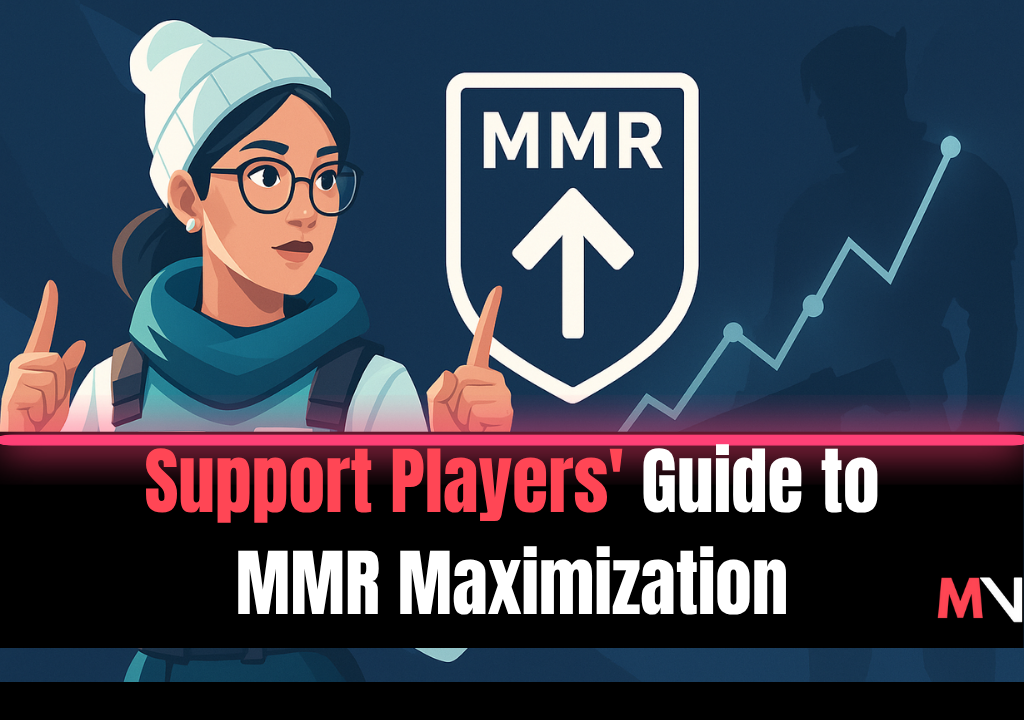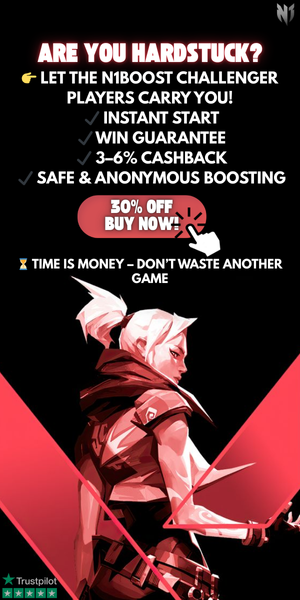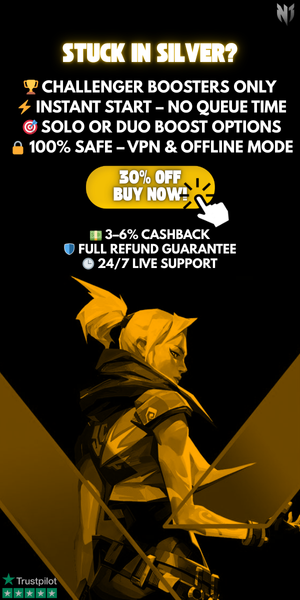Support Players' Guide to MMR Maximization: Beyond Combat Score
In Valorant, it’s easy to assume that MMR (Matchmaking Rating) growth is solely tied to combat score, primarily focusing on kills, deaths, and K/D ratios. However, for support players, whose contributions often don’t show up as prominently on the scoreboard, the path to MMR growth is more nuanced. Support players—those who play roles like Controllers, Sentinels, or Initiators—can still see substantial MMR growth, even if they aren’t racking up as many kills.
This guide will explain how support players can maximize their MMR growth, focusing on aspects of the game that go beyond the combat score. Whether you’re playing Brimstone, Sage, or Breach, the key to climbing the ranks is understanding how to measure your success and contribute effectively in ways that impact your MMR without relying solely on kills.
Understanding Support Roles in Valorant
In Valorant, the term “support player” can encompass several different agent roles:
- Controllers: Agents like Brimstone, Omen, and Astra who manipulate the battlefield with smokes, flashes, and other abilities to control sightlines and create space.
- Sentinels: Agents like Sage, Killjoy, and Cypher who focus on defensive play, healing teammates, and providing utility for site lockdowns and retakes.
- Initiators: Agents like Breach, Sova, and KAY/O who use their abilities to gather intel, disrupt enemies, and initiate engagements for the team.
While these agents may not always secure as many kills as Duelists, they play a pivotal role in ensuring that their team succeeds. Support roles are often about strategic decisions, utility usage, and teamwork, all of which can significantly affect the outcome of a match—and, therefore, your MMR.
How Support Players Contribute to MMR Growth
Your MMR in Valorant is not solely determined by your kill count. In fact, support players who contribute strategically to their team's success can see substantial MMR growth. Here’s how:
1. Utility Usage
Effective use of utility is one of the most important ways support players can impact the game. Controllers, Sentinels, and Initiators all rely on utility—smokes, flashes, heals, traps, and other abilities—to create opportunities for the team. If you’re a support player, you should focus on:
- Strategic Placement of Smokes and Utility: For Controllers, placing smokes at key chokepoints or blocking sightlines at critical moments can be game-changing. Sentinels like Sage should focus on using healing abilities at crucial times, while Initiators can provide intel and disrupt enemies at key points in the round.
- MMR Impact: Using utility to secure kills, deny defuses, or control space can be just as impactful as fragging. Your MMR will improve when you use your abilities to help your team win rounds, especially in post-plant scenarios or critical engagements.
2. Team Play and Communication
The MMR system rewards team success, and as a support player, your contribution to teamplay and communication is crucial. Support players often serve as the foundation of their team’s success, as they enable their teammates to perform better through effective communication, positioning, and support.
- Coordination with Teammates: Ensure you're in sync with your team, whether it’s holding an angle, rotating when necessary, or calling out enemy positions. Support players often act as the glue that holds the team together, and MMR rewards that consistency.
- MMR Impact: Great communication can lead to better team strategies and more coordinated efforts, which increases your chances of winning rounds. Good teamwork, especially in clutch situations, will lead to more wins, which ultimately results in higher MMR growth.
3. Setting Up Kills for Your Team
While support players may not always be the ones securing kills, they’re often the ones setting up kills for their teammates. Whether it’s with smokes that allow for a safe entry, flashes that blind enemies, or heals that keep teammates alive, support players provide essential tools for Duelists and Fraggers to perform at their best.
- Pre-Engagement Setup: Use flashes, smokes, and drones to disorient enemies and allow your teammates to push safely. If you’re playing a Controller or Initiator, setting up the right utility in the right place can lead to a favorable trade for your team.
- MMR Impact: Setting up kills increases your MMR in two ways: by directly contributing to your team’s success, and by showing that you can influence a round beyond simply fragging. A support player who consistently helps set up kills is contributing to the overall team’s MMR growth, which ultimately impacts their own progression.
4. Adaptability and Map Awareness
Being a support player requires you to adapt to ever-changing situations, which is why map awareness is key. Whether you’re playing a Controller role on attack or a Sentinel on defense, knowing when to rotate, when to use your abilities, and where the action is happening is essential for MMR growth.
- Map Awareness: Always be aware of the state of the round, the locations of your teammates, and where you are needed most. For example, if your team is on a site retake, you should position yourself where you can use your utility to disrupt enemies and ensure the plant is diffused.
- MMR Impact: Adapting to the needs of your team and changing your strategy based on the flow of the match leads to better performance. Players who are adaptable and aware of their surroundings are often rewarded with consistent MMR growth.
How to Maximize Your MMR as a Support Player
Here are a few tips for support players looking to maximize their MMR growth:
- Focus on Utility Efficiency: Learn how to optimize your utility usage to support your team. Whether it’s smoking key areas, healing teammates, or providing intel, your abilities should always aim to benefit your team’s overall strategy.
- Be a Team Player: Work with your team to create strategies and provide information. Communication is essential for success, and support players should lead by example, calling out enemy positions, providing helpful pings, and assisting with rotations.
- Refine Your Positioning: Always be in a spot where you can contribute—whether it's setting up utility or providing support. Positioning is key to making sure your abilities hit the mark and help your team.
- Stay Positive and Adapt: Don’t get discouraged by poor performances. Support players often work behind the scenes, and MMR rewards consistency over time. Keep refining your gameplay and adapt to your team’s needs.
Tags

admin
Author




